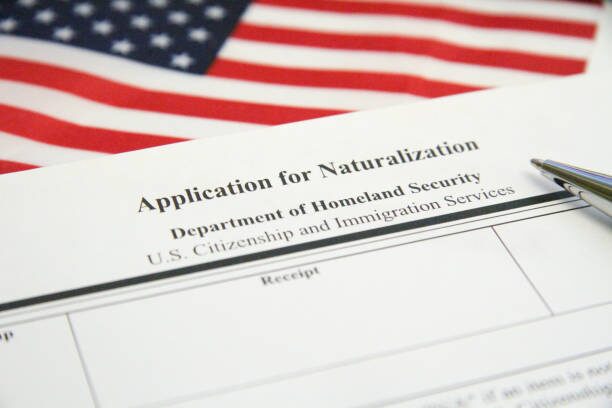Navigating the complexities of U.S. immigration law can feel like traversing a dense and often confusing landscape. As a noncitizen residing in the United States, it’s paramount to be aware of and adhere to certain fundamental legal responsibilities. Among these, two often-overlooked yet critical requirements stand out: the obligation to notify the Department of Homeland Security (DHS) of any change of address within a strict 10-day timeframe, and the mandate for noncitizens aged 18 and over to carry proof of their immigration registration on their person at all times.
These regulations, while seemingly straightforward, carry significant weight under federal immigration law. Failure to comply with either of these duties can trigger serious repercussions, potentially leading to criminal penalties, including substantial fines and even imprisonment. Moreover, such noncompliance can have far-reaching immigration consequences, jeopardizing visa renewals, applications for adjustment of status, and future immigration petitions, ultimately even leading to removal proceedings.
1. Reporting a Change of Address: Your Legal Duty
U.S. immigration law places a clear responsibility on all registered noncitizens to keep their address information current with the Department of Homeland Security (DHS). Specifically, if you are a noncitizen residing in the United States, you are legally obligated to report any change of address within 10 days of your move. This requirement is not merely a suggestion; it is a legal mandate designed to ensure that DHS maintains accurate and up-to-date records, allowing them to contact individuals when necessary for official communications, such as immigration court notices or requests for further information.
The rationale behind this requirement is rooted in national security and effective immigration management. Accurate address information allows DHS to locate individuals if needed and ensures the integrity of the immigration system. Whether you move across the street, to a different city, or even within the same apartment complex but to a new unit number, the obligation to report the change remains.
What Happens If You Don’t Update Your Address?
The consequences of failing to notify DHS of an address change within the stipulated 10-day period can be severe and should not be underestimated. Noncompliance is classified as a misdemeanor offense under federal law. The penalties associated with this violation can include:
- Penalty: Misdemeanor offense
- Fines: Up to $5,000
- Imprisonment: Up to 30 days
Beyond these direct legal penalties, failing to update your address can also have significant immigration impacts. Immigration officials often rely on the address on file to send important notices regarding your immigration status. If your address is outdated, you may miss critical communications, potentially leading to adverse decisions in your immigration case. This noncompliance can negatively affect:
- Visa Renewals: When applying to renew a temporary visa, a history of noncompliance with immigration regulations, such as failing to report an address change, can raise concerns for immigration officials and potentially lead to delays or denial of your application.
- Adjustment of Status: For those seeking to become lawful permanent residents (green card holders), a failure to adhere to address change requirements can be viewed as a lack of respect for U.S. immigration laws, potentially hindering your application for adjustment of status.
- Future Immigration Petitions: If you or your family members plan to file future immigration petitions, such as for family-based immigration, a record of noncompliance can create complications and potentially jeopardize the approval of those petitions.
- Removal Proceedings: In the most serious cases, failing to comply with address change requirements, especially when coupled with other immigration violations, could contribute to the initiation of removal (deportation) proceedings.
It is crucial to understand that the obligation to report an address change is an individual responsibility for every registered noncitizen residing in the United States. This means that if you live with family members who are also noncitizens, each adult and potentially even minor children (depending on their immigration status and age) may be required to file their own change of address notification. It is not sufficient for only the head of household or the primary visa holder to submit a change of address on behalf of the entire family. Ensuring that each individual fulfills this requirement is essential for maintaining legal compliance.
2. Carrying Proof of Registration: A Daily Requirement
Another critical aspect of U.S. immigration law for noncitizens aged 18 years or older is the legal requirement to carry proof of registration and fingerprinting at all times. This mandate underscores the importance of noncitizens being able to readily demonstrate their lawful immigration status when requested by immigration officials or other law enforcement personnel.
The types of documents that serve as acceptable proof of registration include:
- Form I-94 (Arrival/Departure Record): This document is typically issued upon arrival in the United States and indicates your immigration status and authorized period of stay. It can be a paper card or an electronic record accessible online.
- Form I-551 (Permanent Resident Card), also known as a Green Card: This card serves as primary evidence of lawful permanent resident status in the United States.
- Form I-766 (Employment Authorization Document or EAD): This card grants permission to work in the United States for a specific period and is often issued to individuals in certain temporary immigration statuses or those with pending immigration applications.
- Other DHS-issued registration documents: This category can include various other documents issued by DHS that serve as proof of your registered status, such as proof of submission of Form G-325R (Biographic Information).
It is important to ensure that the document you carry is valid and unexpired. An expired document may not be considered sufficient proof of your current immigration status.
Failure to Carry Proof
Similar to the failure to report an address change, not carrying proof of registration can lead to significant legal consequences. This is considered a misdemeanor offense under federal law and can result in:
- Penalty: Misdemeanor offense
- Fines: Up to $5,000
- Jail Time: Up to 30 days
- Criminal Record: It’s crucial to understand that this is a criminal violation, not merely an administrative immigration infraction. A conviction for this offense can create a criminal record that may have long-term implications for your immigration status and future interactions with law enforcement.
The requirement to carry proof of registration is intended to facilitate the enforcement of immigration laws and to allow immigration officials to quickly verify the lawful status of individuals. While encounters with immigration officials may not be a daily occurrence for most noncitizens, being prepared and carrying the necessary documentation can prevent potentially serious legal issues.
Are You Considered “Registered”?
The term “registered” in this context generally refers to noncitizens who have completed the formal immigration registration process and have been fingerprinted by U.S. immigration authorities. This typically includes:
- Visa applicants who completed biometrics during their visa process: As part of the visa application process, individuals often undergo biometric screening, including fingerprinting, which constitutes registration with DHS.
- Lawful permanent residents: Upon being granted lawful permanent resident status, individuals are registered and issued a Permanent Resident Card (Green Card).
- Asylees, parolees, and certain other categories of noncitizens: Individuals granted asylum, those paroled into the United States, and those in certain other specific immigration categories are also generally considered registered noncitizens.
If you are unsure whether you are considered “registered” for the purposes of this requirement, it is advisable to consult with an experienced immigration attorney who can assess your specific situation and provide guidance. 1
Let Sadri Law Help You Stay in Compliance
Navigating the intricacies of U.S. immigration law requires diligence and a thorough understanding of your rights and responsibilities. At Sadri Law Firm, we are committed to providing comprehensive legal assistance to noncitizens in the United States, helping them understand and comply with all applicable immigration regulations.
Our experienced immigration law specialists can assist you in:
- Understanding your duty to report address changes: We can clarify who is required to report an address change and the specific procedures involved.
- Filing online AR-11 (Change of Address) forms with DHS: We can guide you through the process of submitting the required change of address notification, ensuring it is done accurately and within the 10-day timeframe.
- Identifying acceptable proof of registration: We can help you determine which documents you are required to carry as proof of your immigration registration based on your specific immigration status.
- Avoiding immigration penalties due to simple oversights: Our goal is to help you proactively avoid potential legal issues arising from a lack of awareness or understanding of these crucial requirements.
Final Thoughts
Whether you are a student on a temporary visa, a temporary worker, a lawful permanent resident, or in any other noncitizen status, it is crucial to stay informed and up to date on these often-overlooked yet critical requirements. Failing to comply can have severe consequences that could impact your ability to remain in the United States.
Don’t wait until it’s too late. Take proactive steps to ensure you are in full compliance with U.S. immigration law.
Book your confidential consultation today to discuss your situation and learn how we can help you navigate these requirements.
📞 Or call us directly at 408-416-3000.
At Sadri Law Firm, we are dedicated to protecting your rights and helping you achieve your immigration goals. Contact us today to learn more about how we can assist you.
Frequently Asked Questions (FAQs)
What if I am in the process of applying for a green card? Do I still need to report an address change?
Yes. Even if you have a pending application for adjustment of status (green card), you are still considered a registered noncitizen and are required to report any change of address within 10 days of moving. Failing to do so can negatively impact your pending application. You should update your address with both USCIS (as part of your pending case) and separately through the AR-11 online system.
My Form I-94 is electronic. How do I carry proof of it?
If your Form I-94 was issued electronically upon your arrival, you can access and print a copy of it from the Customs and Border Protection (CBP) website. You should carry this printed copy with you as proof of your immigration registration. Ensure the printout is legible and contains all the necessary information.
What if I forget to carry my proof of registration with me one day? Will I be immediately arrested?
While the law requires you to carry proof of registration at all times, an isolated instance of forgetting it may not automatically lead to arrest. However, if you are encountered by immigration officials or law enforcement and cannot provide proof of your lawful status, it could lead to further questioning, potential detention, and further investigation into your immigration status. It is always best to be prepared and carry your documents. Repeated failure to carry proof could lead to more serious consequences.
Does the requirement to carry proof of registration apply to children under 18 who are noncitizens?
No, the requirement to carry proof of registration at all times specifically applies to noncitizens who are 18 years of age or older. However, it is still advisable for parents or guardians to keep copies of their children's immigration documents readily available in case they are needed.






